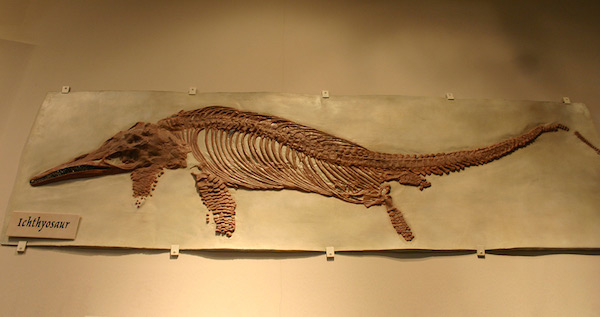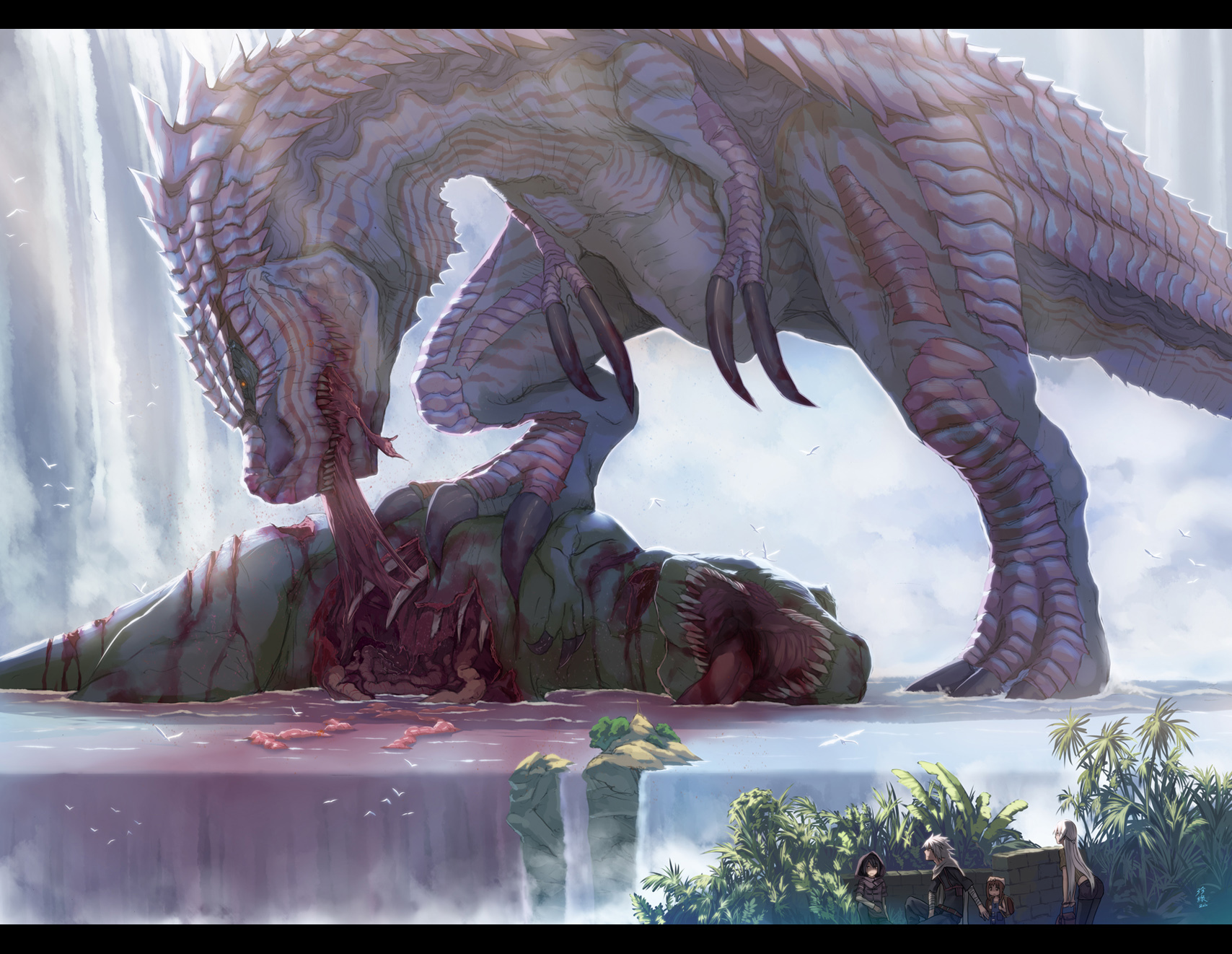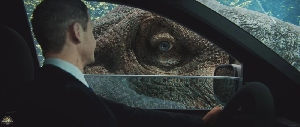New Species of Marine Reptile Identified from Isle of Skye Fossils!
Dinosaurs Forum Topic

Lone
MemberAllosaurusJan 12, 20153583 Views5 Replies
Being Scottish, I am particularly excited by this! :)

An artist’s impression of Dearcmhara shawcrossi, issued by the University of Edinburgh. The Ichthyosaur, whose bones were found on Skye in 1959, has now been recognised as a new species. Photograph: Todd Marshall/PA
The reptile dates from the middle Jurassic, about 170 million years ago, when Skye was partly submerged and home to lagoons.
The bones of this prehistoric reptile were first discovered on the Isle of Skye more than 50 years ago. Scientists have identified them as belonging to a new species of marine predator. This prehistoric reptile is the first Ichthyosaur from Scotland to be described in the Scientific Literature.
Measuring 14 feet from snout to tail, unique features on the animal's main fin bone suggest that it's musculature differed from that of other Ichthyosaurs, and may have made it a stronger swimmer.
Local fossil enthusiast, Brian Shawcross, found the fossilised bones at Bearreraig Bay, in 1959 and donated them to the Hunterian Museum in Glasgow. The remains, consisting of tail, back and fin were only recently recognised as a new species.
To express their gratitude to Mr Shawcross and to encourage other private collectors to donate rather than sell their own fossils, the researchers have named the new species after the fossil enthusiast. Officially named Dearcmhara shawcrossi, pronounced "jark vara", which is Gaelic for marine lizard. The species is described for the first time in the Scottish Journal of Geology today.
“It’s not the prettiest specimen in the world. You can hold all of the bones in one hand. But it’s the first time we’ve recognised a distinctly Scottish prehistoric marine reptile,” said Steve Brusatte, a paleontologist at the University of Edinburgh. "During the time of dinosaurs, the waters of Scotland were prowled by big reptiles the size of motor boats. "Their fossils are very rare, and only now, for the first time we've found a new species that was uniquely Scottish."
Dr Nick Fraser, of National Museums Scotland, said: "Not only is this a very special discovery, but it also marks the beginning of a major new collaboration involving some of the most eminent palaeontologists in Scotland. "It has brought together key organisations, local collectors on Skye and specialists from further afield. We are excited by the programme of work and are already working on additional new finds."
Source: BBC News
"Let The Cosmic Incubation Begin" ~ H.R. Giger
Replies to New Species of Marine Reptile Identified from Isle of Skye Fossils!
Hey Guest, want to add your say?
Are you an avid Jurassic World fan looking for a dedicated online community of likeminded fans? Look no further! Create your own profile today and take part in our forums and gain XP points for all the content you post!












